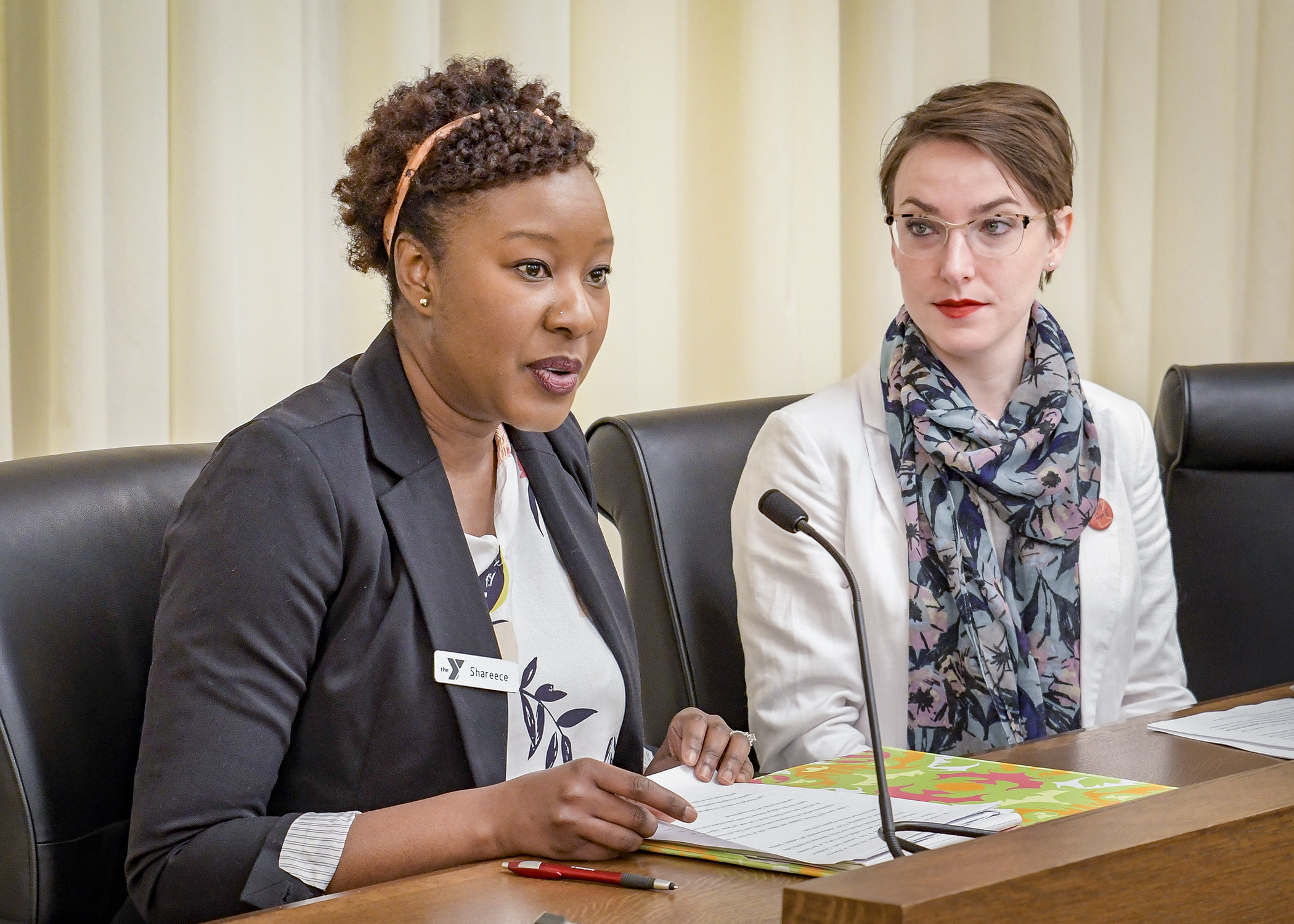Division considers ‘Great Start for All Minnesota Children Act’

Aiming to address opportunity gaps and help the state’s youngest residents, HF1, as amended, would provide additional funding for early childhood education and development, child care, prenatal care and home visiting.
The House Early Childhood Finance and Policy Division reviewed a portion of the proposal focused on child care and development Thursday. The bill, sponsored by Rep. Carlie Kotyza-Witthuhn (DFL-Eden Prairie), was held over for possible omnibus bill inclusion.
HF1 would include the creation of a “Great Start Fund” to expand access to early learning scholarships for children, from birth to age 3. It would also address the high cost of child care by increasing funding for the Child Care Assistance Program, which subsidizes a percentage of low-income families’ child care costs.
Minnesota ranks third highest in the nation for cost of child care, Kotyza-Witthuhn said, at an average cost of over $14,000 per year for a family. Currently, the assistance program supports 7,000 families and over 13,000 children, with a waiting list of approximately 2,000.
“This means that there are 2,000 Minnesota families with less economic security,” she said.
Shareece Gabriel, child care program director for the YMCA of the Greater Twin Cities, supports the proposal explaining that families she works with struggle to find affordable child care, which can perpetuate the cycle of poverty.
“They will describe to me how they have finally found a job that can better support their family, but that without child care for their young children, they would not be able to accept their new employment,” she said.
The inability to afford high-quality child care isn’t only an economic issue, it can impact health and safety, said Mark Hudson, medical director for Midwest Children’s Resource Center.
To attend work or meet other obligations, parents who can’t afford quality care may turn to an inexperienced or unfit caregiver, putting children at risk.
“In Minnesota, we lose as many children to child maltreatment, as we do all childhood cancers combined,” Hudson said.
Sandi Hayner, a mother of four, said she supports the proposal’s goal and initiatives, but cautioned that it contains vague language that could cause unintended consequences. She asked the division to dig into each section and consider the worst case scenarios and then safeguard parents and providers against them.
Reiterating a concern shared by other opponents, Hayner said the bill should “make it clear that accepting support services does not mean mandatory shared custody with the state.”
The state’s child care assistance program receives federal funding and, in turn, must comply with federal regulations. To do so, the bill includes language that would outline a due process for providers who have committed an offense resulting in the loss, suspension or denial of their license.
Rep. Josh Heintzeman (R-Nisswa) opposed due process language that would allow providers, who’ve admitted to engaging in fraudulent activity, to receive a “fair hearing.” Given current allegations of widespread fraud within the program, he said this is especially concerning and asked if that language was explicitly required to comply with the federal requirements.
Laurie Possin, child care assistance program manager for the Department of Human Services, said that language was the state’s attempt to meet compliance. Kotyza-Witthuhn indicated the Office of the Legislative Auditor plans to release a report on the assistance program next week. Depending on its recommendations, the bill could be modified.
“I think that this bill is a work in progress,” she said.
Its companion, SF820, sponsored by Sen. Melissa Wiklund (DFL-Bloomington), awaits action by the Senate Health and Human Services Finance and Policy Committee.
Related Articles
Search Session Daily
Advanced Search OptionsPriority Dailies
Ways and Means Committee OKs proposed $512 million supplemental budget on party-line vote
By Mike Cook Meeting more needs or fiscal irresponsibility is one way to sum up the differences among the two parties on a supplemental spending package a year after a $72 billion state budg...
Meeting more needs or fiscal irresponsibility is one way to sum up the differences among the two parties on a supplemental spending package a year after a $72 billion state budg...
Minnesota’s projected budget surplus balloons to $3.7 billion, but fiscal pressure still looms
By Rob Hubbard Just as Minnesota has experienced a warmer winter than usual, so has the state’s budget outlook warmed over the past few months.
On Thursday, Minnesota Management and Budget...
Just as Minnesota has experienced a warmer winter than usual, so has the state’s budget outlook warmed over the past few months.
On Thursday, Minnesota Management and Budget...
